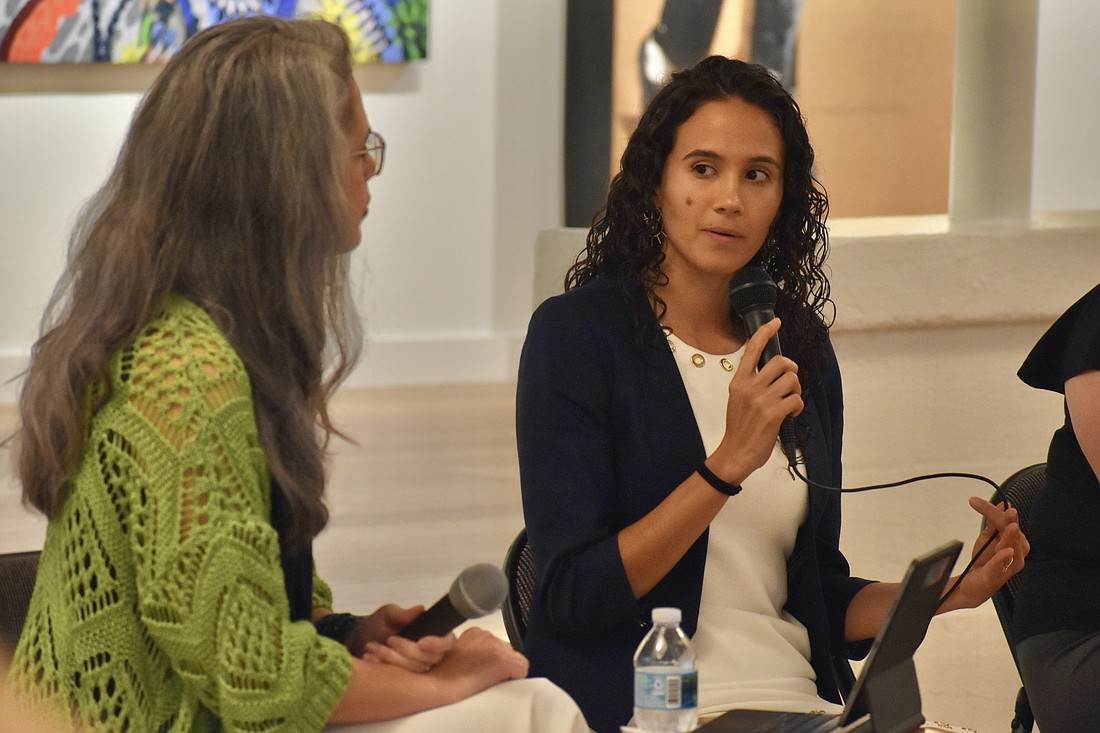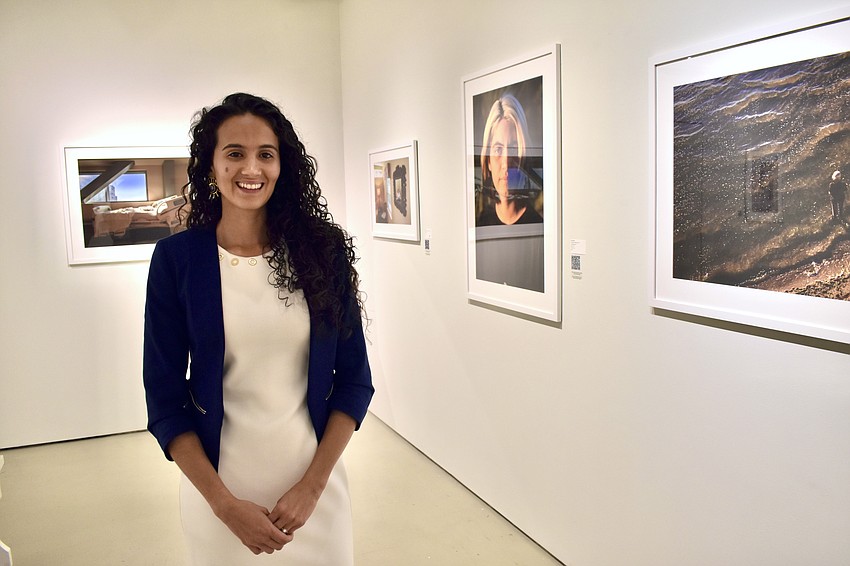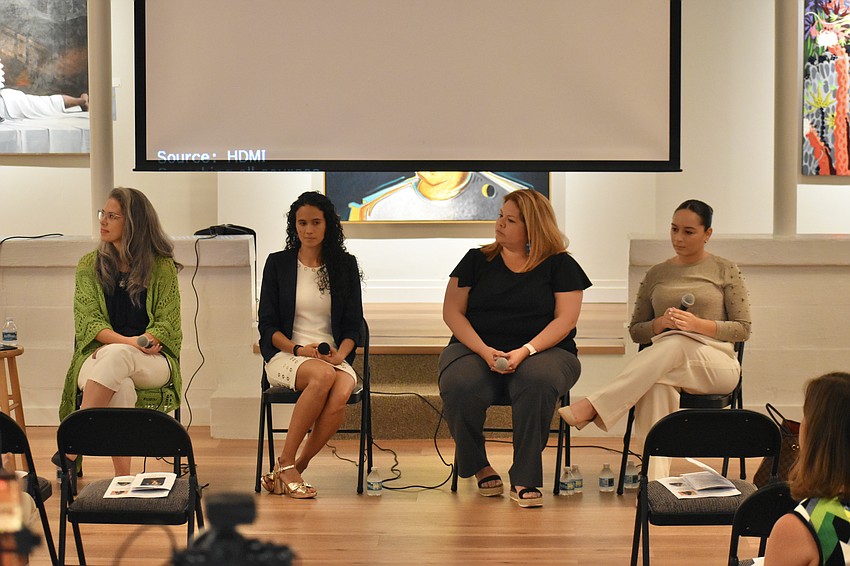- April 4, 2025
-
-
Loading

Loading

At the same time evocative photographs lined gallery walls, a conversation became the centerpiece of Art Center Sarasota on April 12.
“It’s not something you normally see in the community — there’s an art center, and let’s talk about this,” said attendee Natalie Caukwell.
Held as a tie-in event with the ongoing exhibition "Rearview Mirror"/"El Retrovisor" by Karen Arango, the artist talk “Mental Health Care in the Latinx Community" brought together a four-member panel to discuss current issues in mental health impacting the Latino community.
The exhibition was sponsored by a $10,000 grant from the Gulf Coast Community Foundation, the second time the foundation and art center collaborated on a project intended to impact the community.
Arango, a Sarasota-based freelance photographer and videographer, said the photographs of her exhibition were inspired by her own past struggles with mental health, a topic she said is generally highly stigmatized in Latino culture.
Arango has a bachelor's degree in photography and imaging from Ringling College of Art and Design and a master's in digital journalism from University of South Florida. Over a period of about four months, she photographed other Latinos in the community, documenting their stories. Some of the subjects she knew personally; others she sought out.

Gallery visitors can read the stories behind each photo by scanning QR codes accompanying the artwork.
The panel discussion was moderated by Dr. Stacie Herrera, owner of Herrera Psychology, a youth-based private practice in Osprey. Other panelists included Yesenia Reta, a clinical social worker who specializes in treating adults with anxiety, depression, complex and acute trauma and relationship issues; Carolina Zuluaga, a graduate student in the clinical psychology doctorate program at National Louis University completing a dissertation about the impact of COVID-19 on the Black and Latino communities; and Arango herself.
Kinsey Robb, executive director of Art Center Sarasota, said the art center aimed to make the event as bilingual as possible by offering a projection screen displaying an AI real-time speech-to-text Spanish translation.
Herrera said research by the CDC said Latinos were disproportionately affected by mental health issues related to the COVID-19 pandemic. She said among Latinos, the prevalence of depression was 40%, compared to 25% among non-Hispanic white individuals, while suicidal thoughts reached 23% among Latinos compared to 5% among Black and 5% among white individuals.
The discussion repeatedly involved the topic stigma surrounding mental health treatments. Reta said stigmas usually begin in the family, with the belief that individuals should help themselves, seek help from family or talk to a faith or spiritual leader.

The panelists said other barriers exist.
"I think the language barrier is a huge thing," said Zuluaga. She said the affordability of health care was a problem, with many not having access to health insurance, while transportation to services also needs to be addressed.
While Arango chose to focus her artwork on individuals seeking treatment, she noted another side of the story was captured through Jesus Hernandez, who chose to avoid treatment, fearing impacts to his immigration status.
Arango said it is important for Latinos seeking treatment to find a psychologist to whom they can relate.
"I once went to see a psychologist," she said. "She didn't speak Spanish, and we didn't really connect. And then I started seeing someone who spoke Spanish, and I said, 'this is what I need.'"
As the panel emphasized, forming interpersonal connections in the community is key to maintaining mental health.
“It’s all about connection,” said Herrera. “Connection staves off anxiety, addiction and depression in a beautiful way.”
Robb said the discussion was important for bringing the issue into the public eye.
“I love these types of discussions, because sometimes it just opens the door to let people know a topic can be discussed in public, out in the open.”
She said artwork was an important outlet for expression regarding the topic.
“These are powerful images," she said, adding she was proud of Arango, as well as the subjects who chose to reveal their stories to the public.
Arango said she was grateful to the community for coming together in support of the gallery and event.
“It’s inspiring and refreshing,” said Arango. “It’s just great to see this kind of work, about a minority group of people, being displayed here in Sarasota. It feels very inclusive. I feel very supported by the community; it’s a big collaboration between all of us, and it’s what makes the community a community.”
A portion of the proceeds from sales of the photos will go toward the Women’s Resource Center to support its mental health programs.